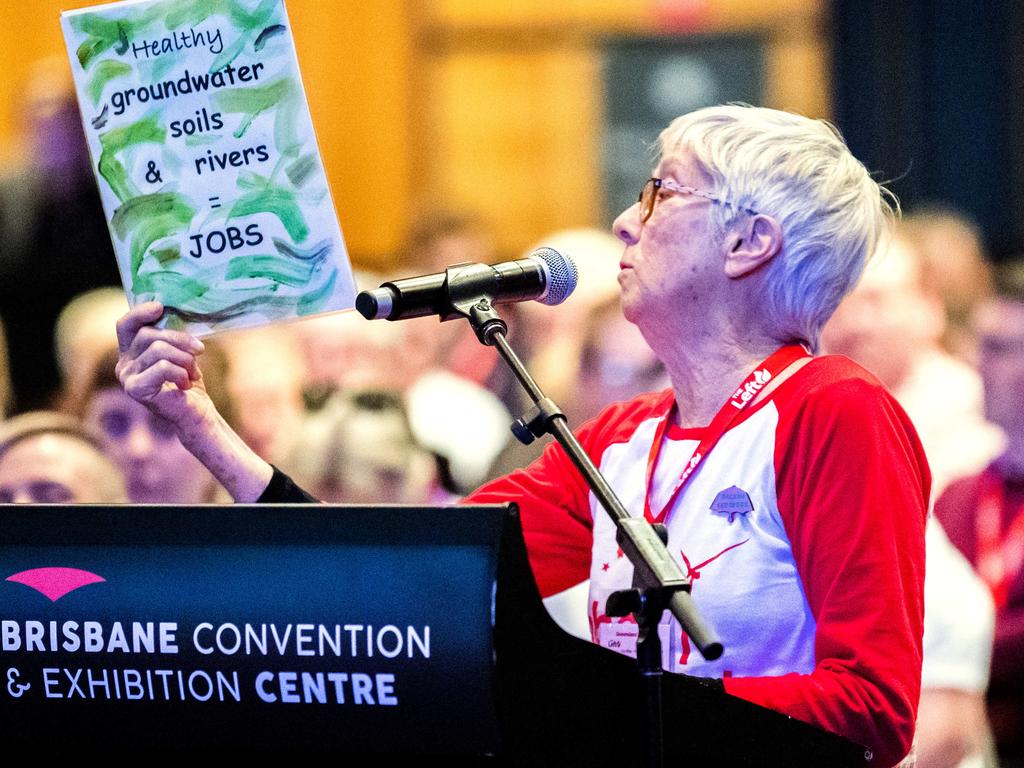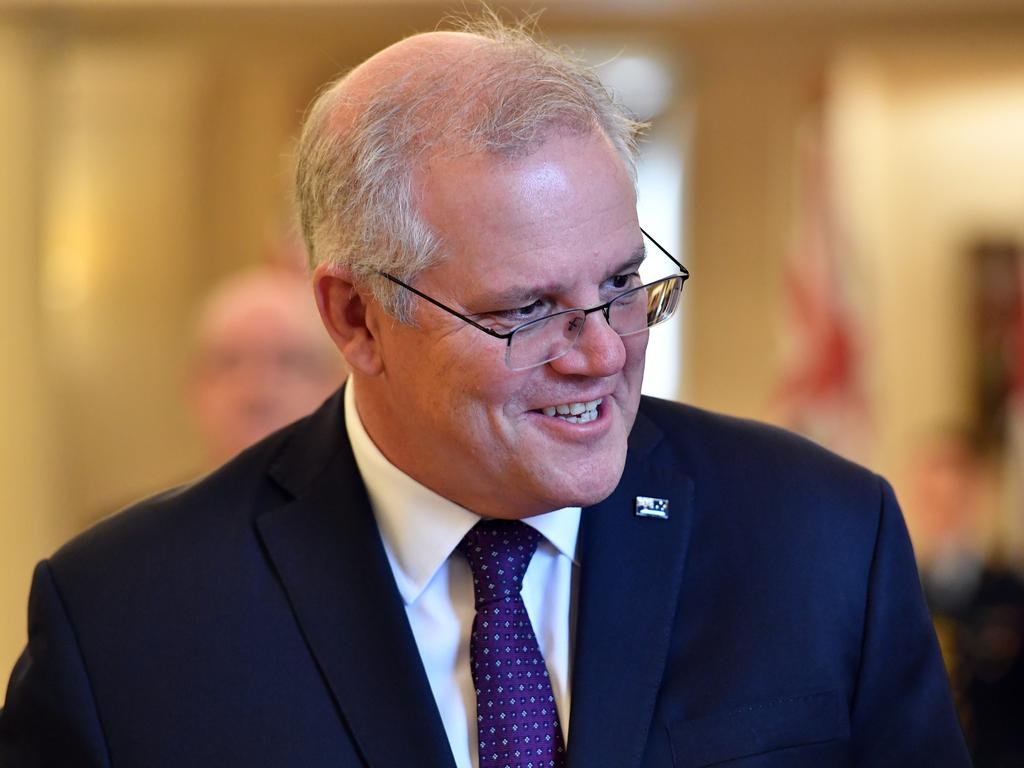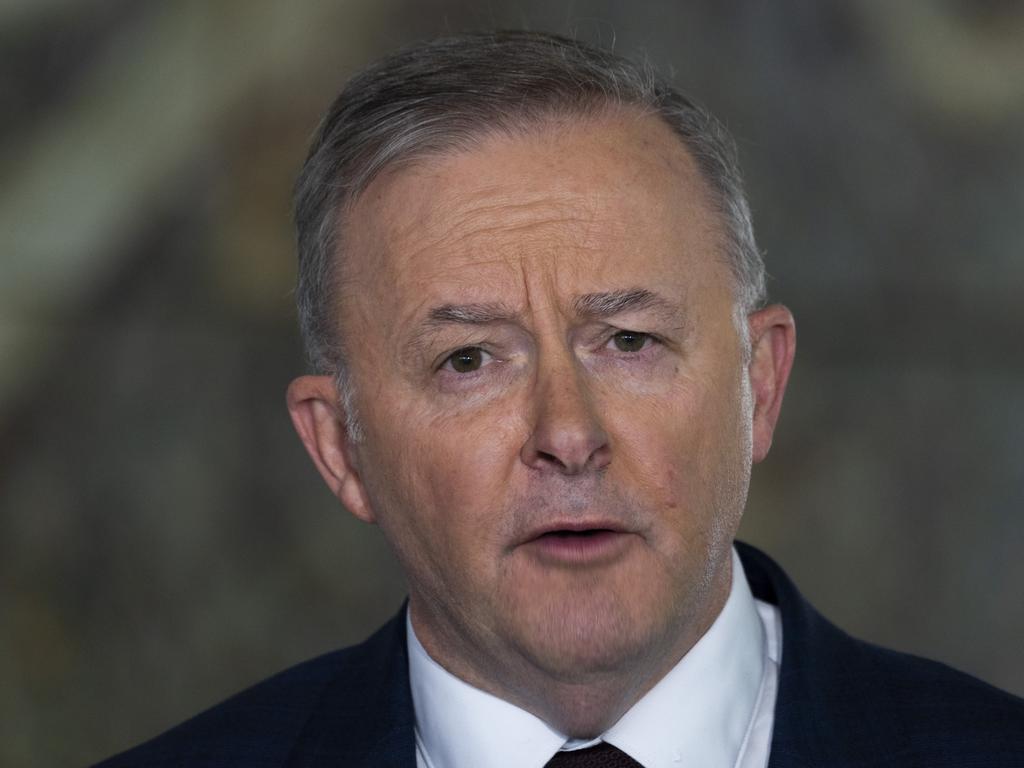Labor’s chance to seize centre and win

This became an element in federal Labor’s evolution and was especially evident in the careful custodianships of treasurers “Red Ted” Theodore, Ben Chifley, Keating and Ralph Willis. It is certainly evident in Wayne Swan’s comparatively modest spending to keep Australia free from the recession that accompanied the global financial crisis earlier this century.
There have been exceptions, of course, but the overwhelming reality of Australian politics is that both sides of the aisle have been subdued and sober with the public finances.
So it is somewhat contradictory to see Josh Frydenberg, noted for creativity during the pandemic, bring down a budget that appears to jettison any claim by the Coalition to remain the party of restraint in public spending. Indeed, we are all Keynesians now, are we not?
The question that arises is: whatever happened to Milton Friedman and his devotees? Did the assertion of smaller government, lower taxes, and reduced budget deficits, the hallmarks of the Reagan and Thatcher eras, mean absolutely nothing?
Keynes was presciently correct in insisting that during an economic downturn the public purse should be open to pick up the slack and generate economic activity to maintain growth and employment. So no argument there, but what I notice among my conservative friends is the outright horror at the scale of Australian government spending, with its tacit acceptance of continuing deficits and debt.
It is a reality that the Reserve Bank has argued successfully to the government that provided the rate of growth exceeds the rate of inflation for the future, then no one need be troubled by the size of the national debt. This comes perilously close to an embrace of modern monetary theory, which appears to have become the preferred policy option for some central banks around the world.
Predicting the economic future is always fraught with peril and the inflation spurts that are appearing in different economies at the moment should give certain policymakers pause for thought.
Legend has it that when General Charles Cornwallis surrendered his British army to General George Washington and Gilbert du Motier, the Marquis de Lafayette, at Yorktown in 1781, he ordered his regimental bands to play The World Turned Upside Down as they marched out in defeat. Curiously, there is no contemporary American witness to this, but in the years of the young American republic the story circulated and achieved the status of military scripture. This resides in the bloodstream of every American historical enthusiast.
Currently, the bands are again playing to an audience and the world has indeed been turned upside down, perhaps best reflected in the preparedness of conservative parties to discard the challenge to their opponents on the left, implicit in the time-honoured cry: “Where’s the money coming from?” Instead, they spend with an Argentinian abandon.
This is not to argue for austerity. The government is right in rejecting that course. But leave us turn the coin over and examine federal Labor’s approach in response to this budget.
The world having turned upside down means the political party that recovers its balance first and most steadily has an enormous advantage.
To this end, there was little or nothing to stop the opposition moving into the centre right and outflanking the Coalition. Bob Hawke and Keating occupied the centre ground of Australian politics for 13 years, pushing the Coalition off to the right and eventually into ideological indulgence.
Outflanking your opponent always requires a certain boldness, but the rewards are commensurate with courage.
The federal opposition could have promised in its budget reply to spend less. The D-words come into play here: defer, delay or delete. In a budget that is suggested to be $161bn in the red, shaving $10bn off discretionary or recurring expenditure does not require a PhD in quantum mathematics.
Do this while prioritising the essential areas of expenditure – employment; health and education; aged care; defence and security – immediately affords the ALP the high ground in our politics. Commit to save $100bn across 10 years and you will suddenly emerge as the alternative government.
The next Australian election may not be the lay-down misere for the Coalition that some of the conservative commentariat have assumed. Incumbency certainly affords governments of all persuasions in virtually all jurisdictions a considerable advantage due to Covid-19 when the polls arrive. The only exception is last year’s US presidential election where Joe Biden simply let Donald Trump talk himself out of office.
Only the churlish would not acknowledge the Morrison government’s overall handling of the pandemic. But there have been stumbles and this is why the polls in Australia remain tight.
The government is not without pressure in the House of Representatives and Senate, and the challenges are real. Premier Mark McGowan demonstrated in the recent West Australian polls that people are prepared to vote Labor when they are certain the ALP has their interests at heart. The rest of the country is no different and it is the kitchen-table debate that lies before the federal ALP.
Being the more fiscally responsible of the parties in Canberra would enable the ALP to be much more assertive and confident in its campaigning.
Across a century, the most dramatic moves by the federal ALP have often proved to be the game changers: Andrew Fisher on the Great War; James Scullin on an Australian governor-general; John Curtin on conscription; Gough Whitlam on China; Hawke and Keating on economic liberalisation.
Party identity in democratic politics is the critical vehicle for communication with your electoral base. For example, few would question where Peter Dutton or Penny Wong, respectively, stand on the issues. They are both definitive and this is to be respected. At the moment, Coalition identity is blurred and the traditions from Robert Menzies to John Howard are no longer in focus.
Consequently, the ALP should be prepared to reshape its identity as a disciplined alternative government. It would not be abandoning Keynes for Friedman, merely moving in an effective direction that much of the Australian electorate would welcome.
Stephen Loosley is a former ALP national president and senator.







All my life, like most social democrats, I have been lectured by conservative commentators about the profligacy of Labor governments with the public purse. A glance at Australian history from Chris Watson to Paul Keating suggests otherwise. Indeed, as Ross McMullin underlines in his superb book, So Monstrous a Travesty, the first Labor prime minister in Watson was astonishingly prudent with the public finance.